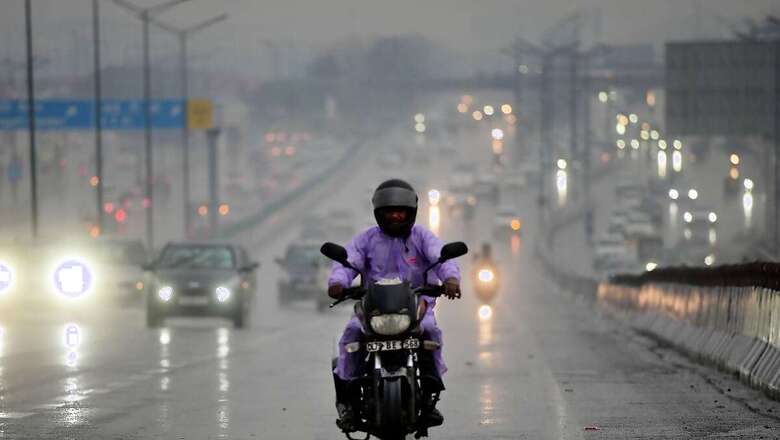
views
The Bihar government is all set to get real-time air quality monitoring (AQM) reports from all 534 blocks in the state from next month.
The Bihar State Pollution Control Board (BSPCB) in association with Indian Institute of Technology (IIT), Kanpur, has already installed indigenously developed sensor-based AQMs in 432 blocks, covering 33 districts, in the state.
“Work is on to install AQMs in the remaining 102 blocks in the state by the end of this month. From September 1 this year, the BSPCB will start getting real-time AQM reports from all 534 blocks, covering 38 administrative districts.
“Bihar will become the first state in India to get AQM reports from indigenously developed sensor-based systems from the block level. Currently, there are only 41 air sensors in Bihar and they have been installed in urban areas”, BSPCB chairman Devendra Kumar Shukla told PTI.
“The AQM reports will help identify factors responsible for increase in air pollution at any spot, such as vehicles, dust, biomass burning, and emissions from industries so that preventive measures can be taken accordingly. Air pollution remains a major challenge in our state”, he said.
The Indo-Gangetic plain also consists of several rural and urban hot spots of air pollution in the state and improving air quality in these areas is the top priority of the state government, Shukla said.
The AQM reports from the rural areas will help local communities, policymakers and researchers understand the ground situation, he said, adding the data will also enable actionable and evidence-based decision-making.
“Authorities concerned will also be in a position to evaluate the difference between rural and urban air quality after completion of the project,” he added.
Besides, the BSPCB recently signed a Memorandum of Understanding (MoU) with the Institute of Environment and Sustainable Development, Banaras Hindu University (BHU), to conduct a real-time source apportionment study, which will help identify the sources of air pollution in the extended urban areas of Patna. This study will be completed by September 2024.
“This is also a crucial study that will find out the level of toxicity in the air. Apart from conducting emission inventory, carrying capacity and source apportionment of particulate matter pollution, experts will also collect data on the contribution of river bed material (soil) and source of road dust”, the BSPCB chairman said.
This study is aimed to investigate the seasonal mass concentration level of PM2.5 and PM10 in ambient air of the extended urban area of Patna, Shukla said.
PM stands for Particulate Matter. PM2.5 and PM10 are minute particles present in the air and exposure to it is harmful to health. When the level of these particles increases and penetrates deeply into the lungs, a person experiences health issues like breathing problems, burning and sensation in the eyes.
After Patna, a similar pilot study may be conducted in other major cities of the state, including Gaya and Muzaffarpur, he added.
Poor air quality, especially during winter, in different cities of Bihar has always remained a matter of concern for the authorities.




















Comments
0 comment